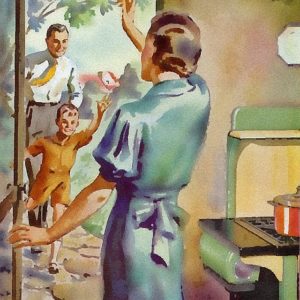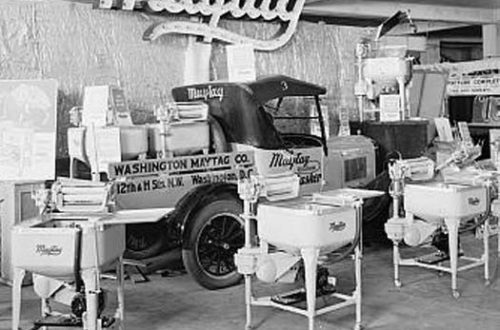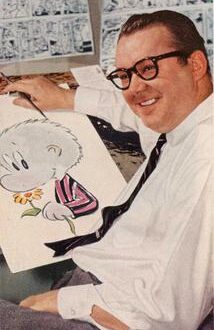“…with the advent of smart technology and the ever-present digital distractions in our pockets and purses, the “fear of missing out“ has emerged as an almost infectious cultural tension.”
 I’m a list maker who loves the feeling of crossing items off my list. I admit that on occasion I add to the list the routine thing, or two, that I would do anyway just to have the satisfaction of crossing it off. I have found that I usually list several things more than I could realistically get done in a day. Do you do that – have a big list, mental or written, of what you think you can/should get done, then feel bad that you didn’t accomplish everything? I used to ask myself where the time went, and why didn’t I get more done. However lately, I’ve realized that I am simply being unrealistic about how much is reasonable to get completed. I think this is a consequence of how much busier our lives have become.
I’m a list maker who loves the feeling of crossing items off my list. I admit that on occasion I add to the list the routine thing, or two, that I would do anyway just to have the satisfaction of crossing it off. I have found that I usually list several things more than I could realistically get done in a day. Do you do that – have a big list, mental or written, of what you think you can/should get done, then feel bad that you didn’t accomplish everything? I used to ask myself where the time went, and why didn’t I get more done. However lately, I’ve realized that I am simply being unrealistic about how much is reasonable to get completed. I think this is a consequence of how much busier our lives have become.
When I was growing up in the 50s and 60s, most moms stayed at home (for better or worse), kids were not scheduled for all sorts of activities and everyone ate at the dinner table together. Folks could make ends meet on one salary. We didn’t have as much stuff – no walk-in closets, no storage units. Homes were smaller (ours was 1700 square feet), and televisions with roof-top antennas and phones with cords were the only high tech equipment. Life was so much calmer, and more real. Don’t get me wrong – it wasn’t all Leave It to Beaver-perfect.
These days, most adults have one or more jobs requiring 40 or more hours a week of their time. In looking for statistics about how many hours Americans work, I found story after story of how many more hours on average we work than those in other western countries. All those hours working affects the rest of one’s life. And there are so many more ways to be busy what with work, activities, and technology. We like to be busy because it makes us feel important, engaged, connected, and worthy. One looks around and sees everyone else racing about so we think that’s how life is supposed to be. We’ve become conditioned to not be idle. Author Alison Quirk writes: “Take a moment to look around the next time you’re in a meeting, at a social event, waiting in line or walking down the street. You’ll likely find yourself surrounded by people staring at a smartphone or other digital device. Chances are you’ll do likewise. What’s going on here? Technology’s hold on all of us is powerful— and according to a new book that’s getting a lot of attention — that hold may be harmful to both our professional and personal lives. In her new book, Reclaiming Conversation: The Power of Talk in a Digital Age, Sherry Turkle suggests: “With the advent of smart technology and the ever-present digital distractions in our pockets and purses, the “fear of missing out“ has emerged as an almost infectious cultural tension. As a cousin to boredom, the fear of missing out drives many of us to our devices to check emails, log onto Facebook, hop on an app or consult our RSS feeds. Like yawning, it feels contagious. This isn’t connection — this is interruption. Worse, the message we send to others when we constantly check our devices in their presence is that we fear we’ve made the wrong decision about how to spend our time.”
How do you feel when you’re overly busy? How do you feel when you’re not? When do you feel most creative? Neuroscience shows that we’re most creative when we’re idle and the brain is open to inspiration. Busyness makes you sacrifice other things you value. Ask yourself:
• What do you wish you had time for now?
• What did you love to do in the past, but no longer have time for?
• What steps can you take to reclaim that?
• Most importantly, what is keeping you from making these changes?
In the mid-1990s, we took the Northwest Earth Institute’s discussion course, Voluntary Simplicity. It started us on our path to simplifying our life (and to eventually reducing our waste to just one can of garbage a year). Bear in mind that simplifying isn’t always simple. One definitely has to change habits and approaches to everyday decisions, and as we know, changing habits can be a challenge. However, we have found it freeing, knowing that we have choices. We do not have to race around. We do not have to buy too much, whether that means stuff, technology, whatever. Nor do we have to work long hours to take care of our needs, which would give us more time for the things that matter most to us. For us, the trade-offs are worth it. I recently was part of the curriculum committee for Northwest Earth Institute’s newest discussion course, A Different Way: Living Simply in a Complex World. This course specifically addresses the busyness of living in today’s fast-paced culture thusly:
“While today’s popular version of simplicity seems to obsess about how little one can own, people have long chosen lives free of material excess for many different reasons, from environmental to esthetic, personal to global, religious to financial. Some choose to live simply in the woods or on farms. Others live in cities or travel the world. Overall, people who choose simplicity are united in wanting to create and live lives that are meaningful to them. They don’t want to follow a path that has been laid out before them. For simplifiers, living with less is a path of freedom — freedom from environmental degradation, from the stresses of clutter, from worrying about money, from feeling too busy, from the pressures of consumer culture. Simplifiers pursue non-materialistic paths to satisfaction and meaning, choosing a life they find more authentic and less wasteful. Some folks choose simplicity as a path toward peace. Others choose it as an adventure. Neither motivation is wrong or right — it’s all about aligning your actions with your personal values.
Regardless of your personal motivations, A Different Way: Living Simply in a Complex World will help you and your friends or colleagues connect your personal values and actions to the larger picture and find power to make real change in your lives, communities, and in the world at large. “ (from the introduction to A Different Way: Living Simply in a Complex World)
For more info: https://nwei.org/discussion-course-books/a-different-way/
Betty Shelley, and her husband, Jon, have filled only one 35- gallon can of garbage per year since 2006. In her three-session class, “Less is More: Getting to One Can of Garbage a Year”, Betty Shelley teaches her techniques for reducing waste. For more info: www.reduceyourwasteproject.com






